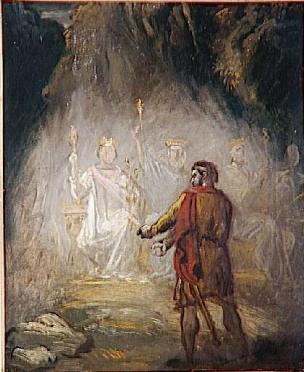There comes a certain point in your time as a reader, at least for more serious readers, when you decide you should read some classics. When I was a kid, I wanted to read the classics because it was the smart thing to do (and smart was cool, in my lexicon as a middle schooler – although that lexicon also involved lots of ugly baggy 90s shirts, but whatevs…). Other people read the classics because they’re curious or because someone recommended a certain book or even just because they have to for school.
When I was at the book signing week before last, I was talking with a couple teenage girls there, and they said they hadn’t really read any classics, that they really preferred girly YA books. And there’s nothing wrong with girly YA books! I love me some adventurous, booty-kicking YA heroines. So why read classics?
For a few reasons:
- You can more fully understand the fun books you’ve been reading this whole time. How is this? Well, most authors are very well-read and tend to incorporate that into their work. Take JK Rowling as an example – the Harry Potter series is filled with allusions to works like the Iliad, MacBeth, the Canterbury Tales, and the Bible. The characters even have a discussion about the meaning of I Corinthians 15:26 (“And the last enemy that shall be destroyed is death”), among other things, in Harry Potter and the Deathly Hallows. Other examples of this are the frequent allusions to Tennyson’s poetry and Dickens’ A Tale of Two Cities in Cassandra Clare’s The Infernal Devices series and Suzanne Collins’s abundance of allusions to the Roman Empire and to Shakespeare’s Julius Caesar in The Hunger Games trilogy.
- It makes you part of a unique group. Not everybody reads classics. You get to be part of the “in jokes,” so to speak, in the literature and book publishing arena whenever people allude to the books you’ve read (and no worries – no one has ready every classical book out there).
- It gives you a broader perspective of the world in general. When could a broader perspective ever be truly bad? Broader perspectives lead to things like the abolition of slavery and equal rights for women.
- It’s fun. Some classics are just as fun to read as books written in the current era. See below for a short list.
Easier Classics
A small sampling:
- Pride and Prejudice by Jane Austen – basically a romantic comedy. Who doesn’t love Elizabeth and Darcy?
- A Farewell to Arms by Ernest Hemingway – love in wartime. It’s a little sad, though, so advance warning.
- Candide by Voltaire – a French comedy with adventure, love, pirates, and Turkish chain gangs.
- The Importance of Being Earnest by Oliver Wilde – a mistaken identity comedy.
- The School for Scandal by Richard Brinsley Sheridan – a hilariously gossipy comedy, with character names like Lady Sneerwell, Sir Backbite, and Snake.
- Much Ado About Nothing by William Shakespeare – get the edition that has explanations on every other page, makes all those Shakespearean insults more understandable (and therefore funnier).
- Brave New World by Aldous Huxley – dystopian fiction from long before The Hunger Games.
NOW FOR THE GIVEAWAY
As promised last week… If you’d like to be entered into the giveaway for a signed copy of Cassandra Clare’s Clockwork Princess, here’s what you do:
- You need to already live in the US or Canada (sorry, international folks, postage is expensive for huge hardcovers).
- Comment below with a number between 1 and 1000 by next Sunday, April 7, at 9 pm Pacific Time.
- In your comment, if you like, answer this question: what’s your favorite classic book and why? And if you don’t have a favorite classic, what’s one you’d like to read?
Related Links:
- Classics Club March Question: Do you love Jane Austen or want to “dig her up and beat her over the skull with her own shin-bone”? (Mark Twain’s phrasing)
- On the Pointlessness of Questioning Whether “X” Classic Book Would Be Published By Today’s Publishing Industry
- The Strangeness of Re-reading Older Children’s Books
- What Makes Love Triangles So Compelling?

